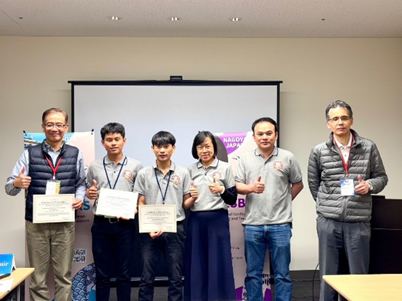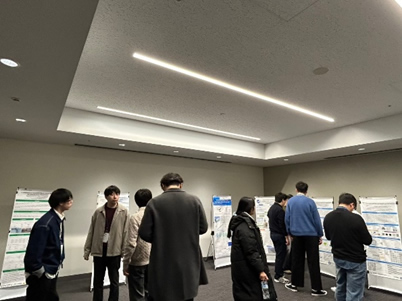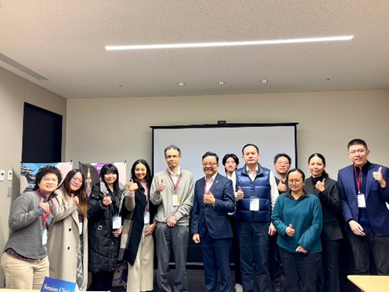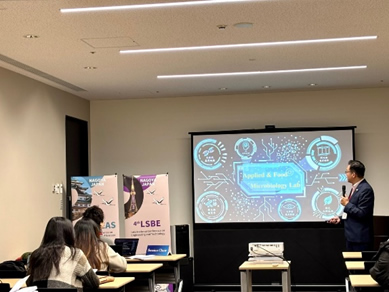2025 LSBE
International Conference on Engineering and Technology
January 07-09, 2025 in Nagoya, Japan
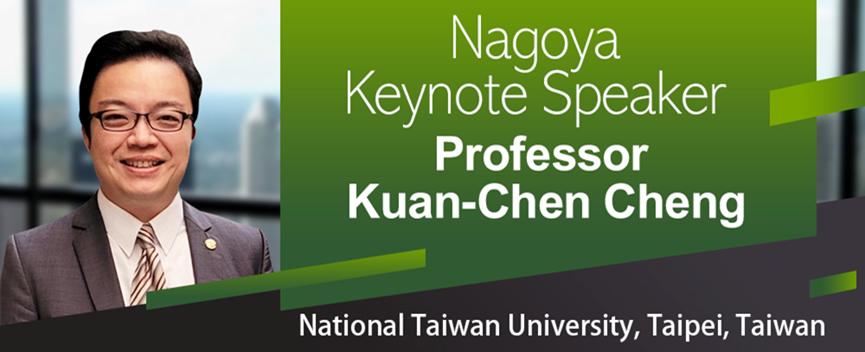
Introduction
Dr. Kuan-Chen Cheng joined the Institute of Food Science and Technology, National Taiwan University, as a faculty member in 2011, after having obtained his PhD in Microbial Engineering at Pennsylvania State University in 2010, followed by one year of postdoctoral training at the University of Arizona at Tucson. Dr. Cheng became a full professor in 2019 and honored an IAFoST fellow in 2024.Dr. Cheng has mentored 5 post-doc fellows, 9 PhD students, and 90+ master students already. The R&D work of his group focuses on three major areas: food biotechnology, renewable biomaterials and precision health. Major areas in which he has been actively involved in recent years include (1) the establishment of food fermentation processes that have assisted the local food industry in producing value-added functional foods; (2) the introduction of novel techniques for the food industry, including cold plasma technology, electrospinning, and microbiome cultivation; and (3) the development of fermented functional foods for aged people. His work has been recognized at an international level as reflected by his publication record of over 140+ SCI-listed journal articles (6,366 citations and h-index of 41) in food-related fields.
Artificial Intelligence Assisted Technology in Precision Fermentation for Functional Foods Development
Microbial fermentation has long been adopted for value-added products production. To improve production yield and to achieve desired quality of target products. Our group aims to utilize the fermentation experience including bioreactor design, strain selection, and microbiological engineering to enhance the production of value-added products such as antimicrobials, organic acids, polysaccharides, and enzymes.
When it comes to food fermentation, we would concentrate on the development of new food ingredients with enhanced health and functional properties. With our experience on fermentation, food chemistry, microbiology, and animal cell culture, I am confident of developing strategic methods for both functional food production and its function evaluation.
Our research team has investigated the health effects of fermented foods made from domestic crops while also using artificial intelligence (A.I.) technology in the precision fermentation of bioactive compounds. Current achievements include the physiological effect of allicin in black garlic, study of reduced salt miso and its inhibition on body fat formation, Chenopodium formosanum fermented beverages and their inhibiting roles in PM2.5-induced inflammation, body fat formation and delayed aging, rice screening for fermentation studies with koji bacteria, anti-inflammatory and antibacterial properties of hops, etc.
In the future, our team will continue to utilize agricultural crops with local characteristics to develop fermented products with personalized health benefits and provide value-added food materials for the elderly.
Keywords: Functional foods; precision fermentation; artificial intelligence; microorganisms.
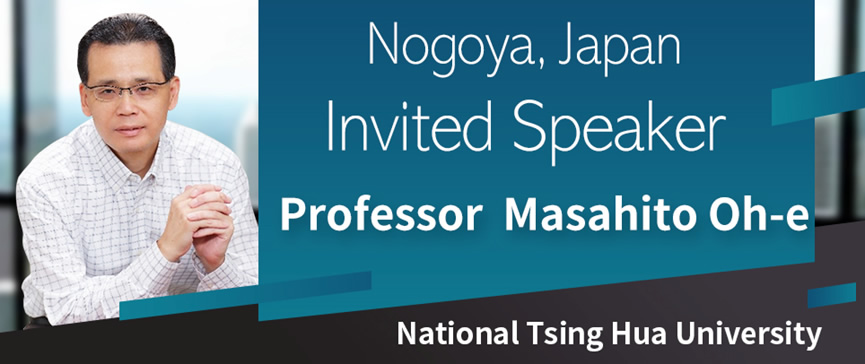
Biography:
Professor Masahito Oh-e earned his master’s degree from the Tokyo Institute of Technology, after which he worked as a research scientist at the Hitachi Research Laboratory of Hitachi, Ltd. He went on to earn his Ph.D. from the Tokyo Institute of Technology while also working as a research scientist at Hitachi, Ltd. He then became a visiting research fellow at the University of California, Berkeley. Continuing to work at Hitachi, he worked with the Japanese government on several projects as part of the Yokoyama Nano-structured Liquid Crystal Project between 2002 and 2008 under research programs called “Exploratory Research for Advanced Technology” and “Solution Oriented Research for Science and Technology” organized by Japan Science and Technology Agency. In 2016, Dr. Oh-e began working as a professor at the Institute of Photonics Technologies, Department of Electrical Engineering, National Tsing Hua University, Taiwan.As one of the inventors of in-plane switching (IPS) liquid crystal displays (LCDs), Dr. Oh-ehas successfully built many frameworks based on IPStechnology, which has enabled developing flat panel monitors and TVs.During this research, Dr. Oh-e eventually contributed to successfully developing ultra-broad viewing angle LCD screens, which are now an industry standard used in numerous common devices such as LCD TVs, tablets, and smartphones, including iPhones.
Mastering Liquid Crystal Phase Technologies for Terahertz Modulation
Liquid crystal (LC) devices for terahertz (THz) phase modulation have a thick cell gap, which inevitably results in a very slow response, particularly when they rely on the passive relaxation of LCs. To vastly improve the response characteristics of LCs for use in THz phase modulation, we virtually demonstrate novel LC switching between in-plane and out-of-plane for reversible switching between three orthogonal orientation states, broadening the range of continuous phase shifts. This LC switching is realized using a pair of substrates, each with two pairs of orthogonal finger-type electrodes and one grating-type electrode for in- and out-of-plane switching. An applied voltage generates an electric field that drives each switching process between the three distinct orientation states, enabling a rapid response.


